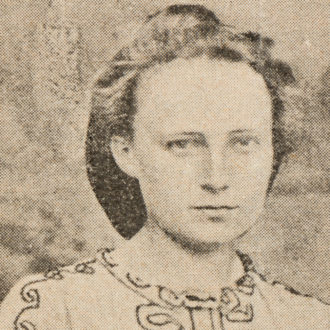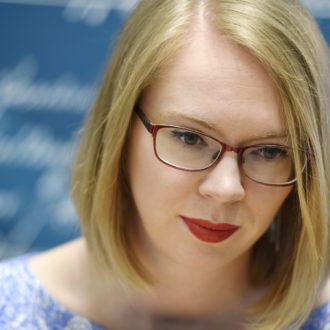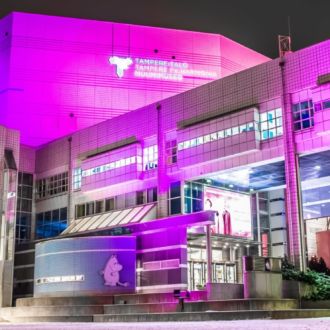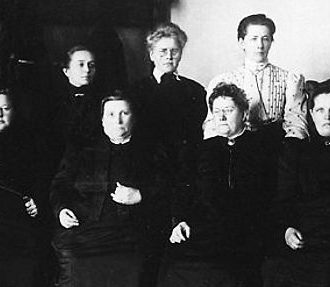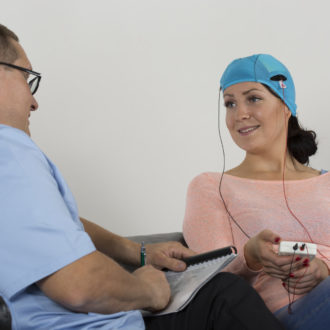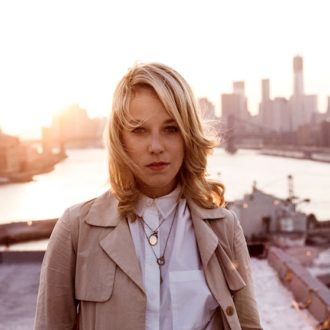Oğuzhan Gençoğlu is one of three cofounders of a unique Helsinki-based startup specialising in machine learning. Their solution is able to analyse data and make specialised predictions; uses range from increasing productivity at a forestry factory to finding out if a patient has prostate cancer.
Born in Ankara, Turkey, Gençoğlu came to Finland to pursue a master’s degree at Tampere University of Technology, where he extensively studied machine learning and deep learning.
“Machine learning is a subset of computer science, where algorithms analyse data, learn from it, and apply what they’ve learned,” he says. “Deep learning is a subset of machine learning which uses artificial neural networks.”
Gençoğlu explains artificial intelligence as “machines mimicking the cognitive functions of humans.” He comments that “people say ‘AI’ too much when they are referring to pseudoscience or science fiction.”
Machine learning can identify objects in images, or even recognise individuals. It can be taught to play games or chat with people. Gençoğlu’s doctoral dissertation deals with using machine learning to predict influenza epidemics based on social media posts.
Diverse advantages
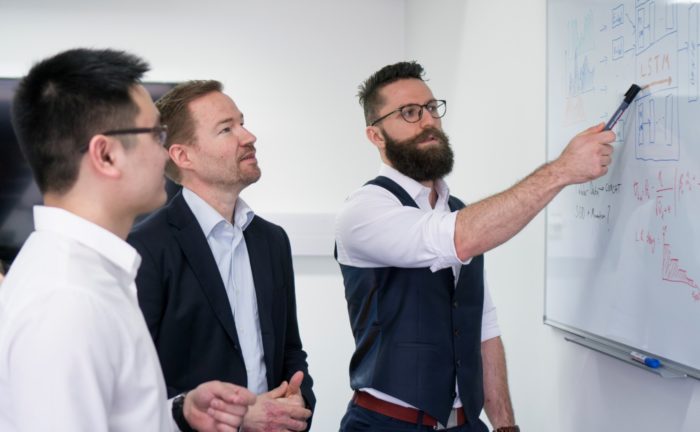
From left: Hung Ta, Timo Heikkinen and Oğuzhan Gençoğlu draw up a plan.Photo: Hoang Minh Trang/Top Data Science
In 2016 Gençoğlu teamed up with Hung Ta, a Vietnamese mathematician with a PhD in biotechnology, and Timo Heikkinen, a Finnish entrepreneur with a background in software, to found Top Data Science, which specialises in machine learning. Now Gençoğlu is the head of data science for a company that has ten employees from six different countries.
“It’s definitely an advantage to be so diverse,” Gençoğlu says. “We work with many international companies, so if we are talking to a Chinese corporation it is a plus to have a Chinese speaker on our team.”
The company uses the multicultural background of their staff as a chance for team building. Every month they have a meeting with events, games, stories about their cultures, and food from their home countries.
“We offer AI as a service: tailor-made solutions to specific challenges,” says Gençoğlu. “If you go to one of the big companies in this industry, they will simply offer one of their plug-and-play products. We spend time to understand the client and the issue.”
Top Data Science has worked with a variety of industries, including forestry and imaging. It is based in GE’s Health Innovation Village in Helsinki, a home for dozens of health and wellbeing startups. Top Data Science’s ties to the health industry paid off when doctors at Helsinki University Central Hospital wanted to minimise biopsies and asked the company to develop software to diagnose prostate cancer from MRIs.
“We trained the algorithm using examples of MRI images and biopsy information,” Gençoğlu says. “Now when it is presented with new data, it is able to make predictions.”
Things we need to understand

People aren’t machines – humans learn differently. They need hobbies and work-life balance. Playing the guitar is one of Gençoğlu’s interests outside the office.Photo: Tiina Hautamäki
Another testing project involved discerning which patients were at risk of getting worse and which could be released from the intensive care unit. Top Data Science’s solution could be a valuable tool for doctors making these decisions.
Gençoğlu is pleased with the status of machine learning in Finland, but concedes there is work to do.
“Finland is a little behind the United States,” he says. “China is also very strong. We have lots of AI talent in Finland, but businesses are conservative and late to embrace it. Sometimes experts in Finland go to work in Silicon Valley or stay in academia.”
Yet some recent activities have increased the status of machine learning in Finland. For example, the University of Helsinki and consultancy company Reaktor have offered a free AI class called Elements of Artificial Intelligence, still available online at the time of writing.
“Elements of AI was a great idea,” says Gençoğlu. “It is important for the public to know how tagging people in pictures has trained Facebook’s facial recognition software, or how identifying spam in Gmail has trained Google’s algorithms. The public needs to understand how this works so they can have an impact on public policy.”
So does he worry about what social networks are doing with his data?
“I don’t have any social media accounts, except for LinkedIn,” he says. “The main reason is that I’m just not interested, but maybe I’m also a bit more conscious of privacy and how data is used.”
By David J. Cord, July 2018

